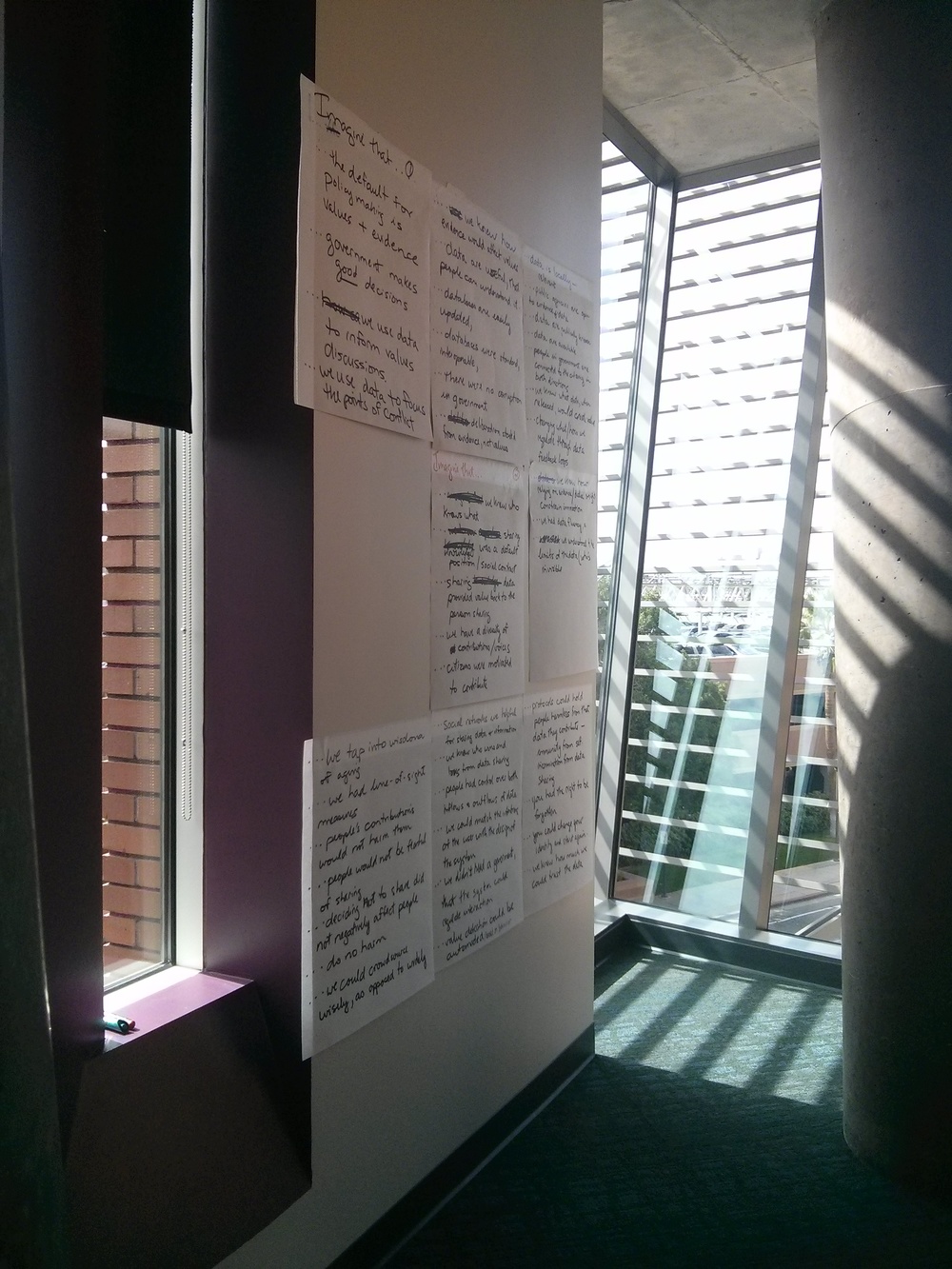
At the MacArthur Foundation Research Network on Opening Governance’s recent meeting at Arizona State University, one of the four extended sessions focused on developing new strategies for training public problem-solvers. The components of open governance – namely collaborative and data-driven efforts – are likely to play an important role in the current and next generation of strategies for solving public problems. The assembled participants agreed that, although the current field of governance innovation is an emerging one, a small but growing body of knowledge on how to take advantage of current opportunities does in fact exist. Now it is the challenge of the open governance community to determine the best ways to transfer this emerging knowledge to those who stand to benefit from it.
Innovative work around training public problem-solvers is already advancing, with Nesta’s Develop Your Skills initiative and the GovLab Academy as two central examples – applications are currently open for many of the GovLab Academy Coaching Programs. The current mission is to provide a framework around which diverse initiatives can be coordinated in the interest of expanding impact.
Audience: Current and Future Practitioners
Although giving citizens the ability to make use of new opportunities for playing a greater role in public decision-making is an important task for the coming years, the training structures discussed in the session were focused especially on individuals interested in certification programs for public work and current practitioners – within or outside of government – with an interest in gaining new skills.
This focus on current and future practitioners should not be confused with targeting training exclusively to public administration Master’s degree students or individuals on track to get a particular government job; rather, this type of training should be targeted to individuals with diverse backgrounds and job functions with an interest in improving their capacity to solve problems innovatively. Innovative training could take place in a traditional university setting, but the techniques should also be applicable in professional settings, online and in a diversity of other contexts.
Objectives: Training Well-Rounded, ‘Post-Disciplinary’ Problem-Solvers
The central goal of this new era of training is to prepare people – regardless of their disciplinary background – to take part in meaningful, integrative conversations with others to the end of solving public problems. Training should focus on fostering the development of skills within individuals that enable them to act as effective discussion partners and collaborators, not just specialists within a given field.
Structure and Content: Project-Centric, Real-World Training
To ensure that new training techniques are useful, scalable and sustainable, flexibility is key. Open governance is a new frontier and locking in training methods could lead to quickly outdated interventions. Building the structure of training initiatives around projects, prototypes and efforts to solve specific public problems will serve not only to ensure flexibility and ongoing relevance, but also to give learners the ability to see how theory plays out in the messiness of the real world.
New training mechanisms require an understanding of which areas of innovative public problem solving require levels of mastery as opposed to areas that only require a level of literacy. Data-driven decisionmaking, for example, is an area where fostering greater literacy would likely benefit problem-solvers, but training everyone interested in solving public problems to become a master-level data scientist is likely excessive. Similarly, smaller exposures to emerging tools can play an important role in increasing literacy, but deep-dive training on specific tools might not be the optimal approach.
It is likely too early to reduce the entire universe of needed skills and available tools into a predictive science and training regimen. The task at hand is identifying and collecting the cases and modules – i.e., the lived experiences from a variety of contexts – that can build up the evidence base for crafting post-disciplinary public problem-solving offerings.
Assessing the effectiveness and impact will be an essential component for developing and scaling new training techniques. Two promising avenues were discussed: 1) taking an evolutionary perspective and determining success based on the survivability of new techniques; and 2) using the numbers of innovative new ideas generated by those involved in the training to determine efficacy.
Follow the Network’s continued work to keep up to date on innovative new training efforts.

